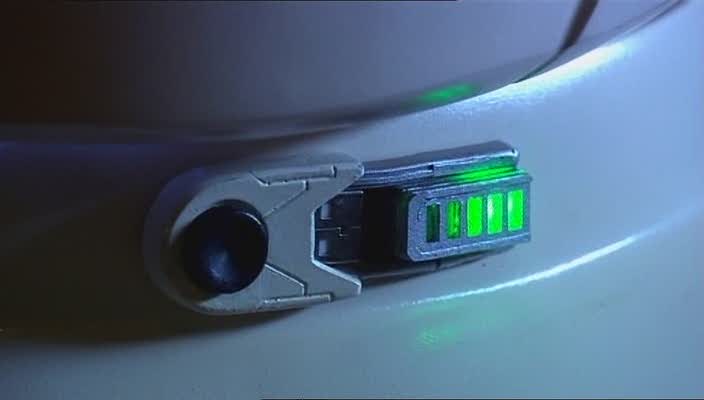The problem with Doctor Who these days, I believe, is that it sucks. If it didn’t suck quite so much it could, in all probability, be a lot better. It is my opinion that generally a lot of things would be better if they sucked less.
All right then. New Who is objectively not entirely made of finest, hand-tooled, machine-washable Fail and in reality is actually rather well put together and largely acted with laudable sincerity and charm. But man, does the writing suck.
Yes, yes, not entirely. The dialogue can be great and the plots engaging. In fact, generally it’s actually all rather good. Except for the endings.
The conclusion of every storyline is always, always utterly arbitrary, never makes any logical sense, never has anything to do with anything that preceded it and really, really just sucks.
What I think I’m trying to say is that Doctor Who is 95% rather good and 5% concentrated suck. Unfortunately, it’s the most important 5%.
No matter how promising the build up, the conclusion always resembles the opening scene of Toy Story:
Alien: Not so fast Doctor. I brought my attack dog with a built in forcefield.
Doctor: Well, I brought my dinosaur, who eats forcefield dogs
Companion: You saved the day again, Doctor!
Doctor: You’re my favourite deputy.* Doctor puts hands in pockets and stares off into the middle distance pondering loss and loneliness *
I’ve put up happily with all this for a while but for two episodes it just became too much to bear.
“Silence in the Library” and “Forest of the Dead” are dirty, rotten conmen. They make you think you’ve just watched the best Who story ever and then sneak back later while you’re sipping your evening Ovaltine to stab you in the back. As your brain slowly gets itself around to plugging the conclusion back into the preceding events, a sneaky suspicion arises that actually, now I come to think of it, that didn’t actually make any sense now, did it.
Suspicion leads to disappointment. Disappointment leads to anger. Anger leads to blogging. And nobody wants that.
I’m not going to go into a conclusive deconstruction of the story. That would require effort. Instead I’m going to focus on the plot device that the entire house of cards was built upon and take cheap shots at it.
The communicator has to be the most disastrously ill conceived piece of consumer electronics ever devised.
Ostensibly, it’s just a plain old walkie talkie, a simple device for members of the crew to keep in touch with each other. Unfortunately, this is the 51st century and the internal communication device market is rather mature and it’s terribly hard to break into the lucrative archaeologist space suit sector. Luckily, this is why we have marketing departments.
At some point during his morning’s 5th Frappuccino, one marketroid had the idea that what a space suit communicator really needs is ThoughtMail(tm). No self respecting space suit wearer would ever dare step foot outside the capsule again without having a ThoughtMail enabled comm system and that, my friends, means big bucks. Get the tech team to make it ready by Tuesday. Frappucinos all round.
We’re not shown thought-mail in action; it’s only mentioned in an amazing sleight of hand by the Doctor as he casually explains to Donna why the silly dead woman won’t shut up. However, it’s massively hard to imagine a situation where thought-mail could be handy and all to easy to imagine situations where it could be catastrophic.
Day 5 of 17 year mission of 2 man craft to explore strange new worlds:
SpaceMan 1 – Thinks: “SpaceMan 2’s personal hygiene is even worse than usual today. I think I may vomit over his misshaped head if he comes any closer.”
ThoughtMail communicator: “Message sent”
SpaceMan 1: “Bugger”
The UI suffers from comparatively minor issues. The device at first glance appears to be of Jobsian simplicity, only possessing a single button and a level indicator. The little button acts just like a button on a regular walkie-talkie; you press it when you want to transmit. This is all well and good except let’s not forget that this device can READ YOUR FREAKING MIND so I think we’ve passed the point of needing to press any damn buttons.
The level indicator seems not to indicate battery life or signal strength but rather the time since the device last had a really good look at your brain. Maybe this is a configurable option. It may be that as the level indicator isn’t actually viewable to the user
Mind reading could easily be considered severe feature bloat for a comms device in and of itself but that’s just the tip of the iceberg. The device also appears to have full blown consciousness storage and brain simulation linked to a voice emulator. This actually gives the device autonomous cognitive and communicative ability.
This functionality is seemingly not apparent during normal usage. However, for some reason it kicks right in immediately and seamlessly upon user death.
Now if I had that kind of tech at my disposal, I think I’d probably use the ability to detect a sudden catastrophic lack of existence with, say, a little red light rather than elaborately pretending the user is still alive despite all evidence to the contrary. There *are* times when run-time errors are the correct way to handle things.
The only circumstance that this may possibly come in handy is if the user is a myriad swarm of flesh eating particles with a collective consiousness that wishes to communicate vocally with humanoids.
I think that can safely be dismissed as an edge case.
August 18th, 2008 | AllReallyBad | 2 comments
